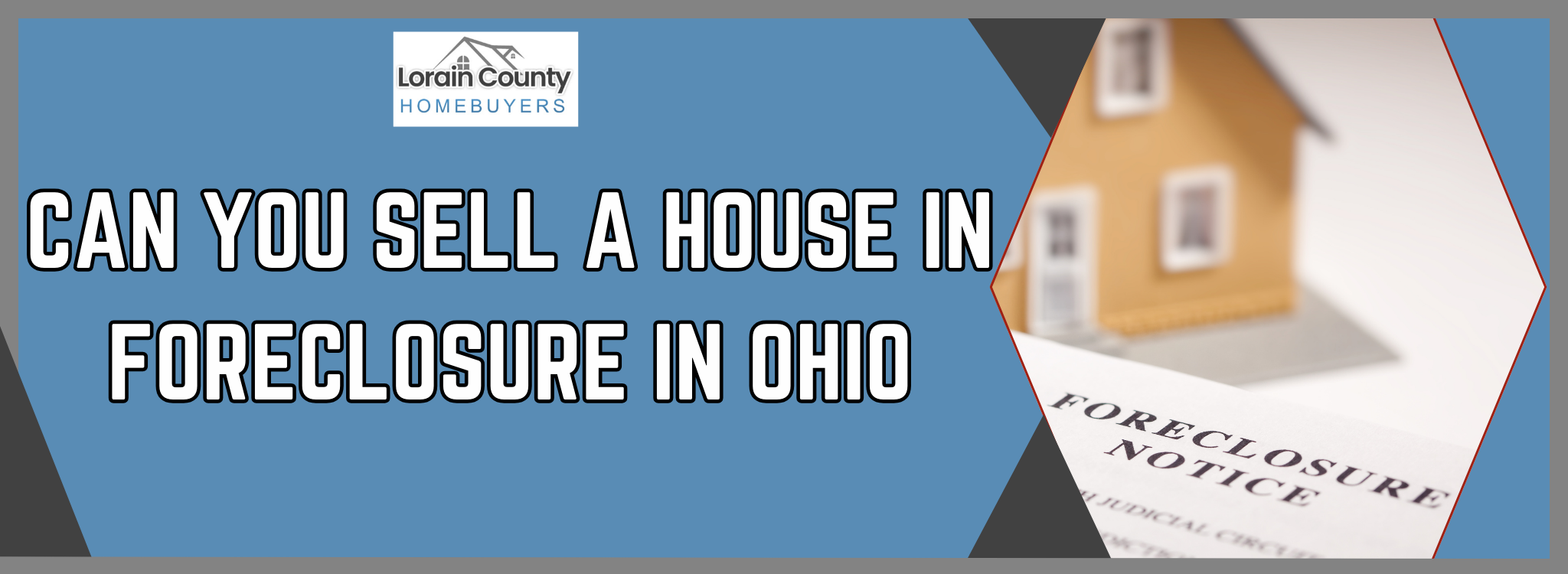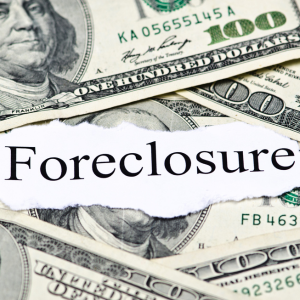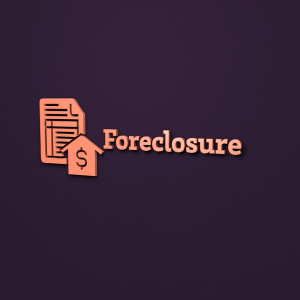
Common Misconceptions About Foreclosure Sales
Is It Possible to Stop a Foreclosure Sale in Ohio?
If you are facing foreclosure in Ohio, you may ask if you
can stop the process. The good news is that there are options for potentially stopping a foreclosure sale. To stop foreclosure in Ohio, consider talking with lenders for loan modifications or seeking legal assistance to understand your rights in the foreclosure process. Acting promptly and seeking legal assistance is important to avoid losing your house to foreclosure in Ohio.
Consider avoiding foreclosure programs in Ohio. These may include refinancing alternatives or repayment programs for late payments. Homeowners can improve their chances of avoiding a foreclosure sale by remaining educated and proactive.
What Are the Legal Rights of Homeowners During Foreclosure?
Understanding Ohio homeowners’ rights during foreclosure is crucial for everyone. Ohio foreclosure laws offer homeowners many defenses. For example, during the foreclosure process, you must be given adequate notice and the chance to oppose the foreclosure in court if required.
Ohio homeowners can reclaim their property following a foreclosure sale by meeting specific conditions, known as the Ohio redemption period. Seeking legal assistance with foreclosure in Ohio can help protect your interests and navigate the process.
Can You Negotiate with Lenders During the Foreclosure Process?
Negotiating with lenders is a possible option during the Ohio foreclosure process. Negotiating with banks in Ohio might result in many outcomes, including new payment plans and loan modifications. These choices not only allow you to stay at home, but they also help you manage your finances.
Investigating foreclosure options in Ohio, such as short sales or deeds instead of foreclosure, can be advantageous. Consulting with Ohio real estate attorneys can provide personalized assistance, allowing for educated judgments throughout negotiations.
Contact foreclosure resolution pros for experienced advice and assistance. By taking proactive actions and understanding your options, you can work toward a solution that matches your requirements.
Financial Implications of Selling a Home in Foreclosure
How Does Foreclosure Affect Your Credit Score?
Foreclosure can significantly diminish your credit score, adversely affecting your financial circumstances for years. Foreclosure is recorded on your credit report, potentially reducing your score by 100 to 160 points. This deterioration may complicate the future acquisition of loans or credit cards. In Ohio, the foreclosure process is judicial and entails court hearings, potentially prolonging adverse impacts on your credit. Investigating alternatives that may mitigate this damage is imperative, such as discussing different solutions with your lender.
Are There Tax Consequences When Selling a Foreclosed Home?
Yes, there may be tax effects when you sell a foreclosed home. Ohio tax rules say that you may owe taxes if the foreclosure leads to the debt being forgiven. The IRS sees this amount as taxable income, meaning your tax bill might increase more than expected. Knowing Ohio’s foreclosure rules can help homeowners find exemptions or other ways to get help. Talking to a tax expert can help you figure out these complicated problems and find ways to lower your tax bills when you sell a foreclosed home.
What Are the Costs Involved in Selling a Home Under Foreclosure?
Selling a foreclosed home involves several expenditures that must be considered. These could include legal fees, broker charges, and repair costs to prepare the house for sale. Knowing the potential financial consequences in the Ohio real estate market is critical. Legal fees vary based on the complexity of your foreclosure case. Realtor commissions typically range between 5% and 6% of the selling price. In addition, existing liens or unpaid taxes may impact the sale’s net revenues. Knowing these expenditures might help you manage expectations and budgets more efficiently.
Can You Gain Financial Relief from Selling a Foreclosed Property?
While foreclosure frequently signifies financial distress, selling a foreclosed home may give some financial relief. Investigating foreclosure options in Ohio, such as speedy home sales, may alleviate financial stress. To avoid damages, homeowners included in Ohio foreclosure listings should act quickly. Short sales or deeds instead of foreclosure may assist in avoiding long-term credit consequences and provide financial relief. Professionals experienced with Ohio’s local market and foreclosure processes can help you achieve better results.
Alternatives to Foreclosure Sales
What Are the Benefits of a Short Sale Compared to Foreclosure?
In the Ohio real estate market, picking between a short sale and a foreclosure can significantly impact your financial situation. A short sale allows you to sell a troubled property without incurring the long-term credit damage that foreclosures sometimes cause. Short sales can assist in reducing financial harm for the pre-foreclosure property. Understanding changes in the Ohio housing market will help you find successful foreclosure alternatives, allowing you some control over your mortgage burden. This strategy makes stopping foreclosure in Ohio possible, potentially allowing homeowners to pay off their remaining mortgage obligations.
How Does a Deed instead of Foreclosure Work?
In Ohio, persons experiencing mortgage troubles can obtain a deed instead of foreclosure. It entails returning the home’s title to the lender, which settles the mortgage obligation and prevents the foreclosure process. Understanding Ohio mortgages and state foreclosure rules, particularly the Ohio redemption period, is critical. This period allows homeowners to regain their properties. Consider a deed in lieu, combined with seeking foreclosure assistance and legal counsel in Ohio, to help homeowners manage their financial problems and minimize potential damages.
When Should Refinancing Be Considered to Avoid Foreclosure?
Refinancing is a proactive approach to avoiding foreclosure in Ohio by lowering monthly payments and managing current mortgage debt. If you are on the Ohio foreclosure schedule, looking into refinancing possibilities may give you much-needed financial relief. The Ohio Housing Finance Agency provides services to help homeowners in this circumstance. If the refinancing terms aren’t right, obtaining a loan modification in Ohio can be worth exploring. Consulting professionals can assist in preventing foreclosure in Ohio.
What Role Does Loan Modification Play in Preventing Foreclosure?
Loan modifications can be critical in preventing foreclosure, particularly during a financial crisis in Ohio. It entails adjusting the conditions of an existing loan to make payments more affordable, such as extending the repayment period or lowering interest rates. Understanding Ohio mortgages and obtaining legal assistance for foreclosure are critical measures. Working with Ohio real estate attorneys can provide additional insight into foreclosure alternatives, allowing you to stay in your house and efficiently cope with financial challenges.
How Important Is a Property Appraisal Before Selling?
It’s important to know how much your home is worth, especially if you want to sell it. An estimate is a professional opinion on how much your home is worth on the market. This is very helpful if you are going through the foreclosure process or are trying to sell a foreclosed home in Ohio, where the market is very competitive. An accurate appraisal helps you set the right price and brings in possible buyers so you can make smart choices as you sell your home.
Do You Need a Real Estate Professional Specializing in Foreclosure?
It can be difficult to sell a home that is in bad shape. A real estate professional specializing in foreclosures can be very helpful and give you good advice. The people in this field know how to handle Ohio foreclosure ads well. They can help you get better results and deal with problems when selling a foreclosed home in Ohio.
How to Prepare Your Home for Sale When Facing Foreclosure?
Getting your home ready to sell is crucial if you’re facing foreclosure. Consider these strategies:
- Evaluate Property Condition: Check your home’s condition to see what repairs or improvements are needed.
- Understand Ohio Housing Market Trends: Keep up with local market trends to make your home competitive.
- Aim for a Quick House Sale in Ohio: Emphasize features that appeal to buyers looking for a fast sale.
These steps can boost your property’s appeal even in tough situations.
Can Improving Curb Appeal Aid in Selling a Foreclosed House?
Yes, enhancing curb appeal can greatly improve your chances of selling a foreclosed home. First impressions matter, and here are some Ohio home-selling tips to attract buyers:
- Enhance Landscaping: Trim bushes, plant colorful flowers, and tidy the lawn.
- Refresh Exterior Surfaces: Repaint, fix visible damage, and clean gutters for a neat look.
- Utilize Home Auctions in Ohio: Consider participating in local auctions as an alternative selling method.
Improving curb appeal increases the likelihood of attracting buyers and achieving a successful sale.
Understanding Ohio’s Foreclosure Laws
Foreclosure can be stressful, especially given Ohio’s specific legal requirements. Ohio’s foreclosure rules are designed to provide a fair process while balancing the interests of lenders and homeowners in the Ohio real estate market. This section describes Ohio’s foreclosure rules, highlights variations from other states, and explains what homeowners should do during the process.
How Do Ohio Foreclosure Laws Differ from Other States?
Ohio has a judicial foreclosure system, which means foreclosures must go through court. This differs from states that allow non-judicial foreclosures. Judicial foreclosure protects homeowners’ rights, ensures due process, and allows for a defense against foreclosure if there are grounds. A key feature of Ohio foreclosure laws is the redemption period, which helps homeowners retrieve their property following a foreclosure sale if certain conditions are met. Understanding the distinctions across states’ foreclosure laws allows homeowners to better safeguard their interests.
What is the Redemption Period for Foreclosure in Ohio?
In Ohio, the redemption period is the time after a foreclosure sale when homeowners can attempt to redeem their property. This term ends when the court certifies the sale, giving you one last chance to pay off your mortgage obligation and keep your house. The sheriff auction marks the end of the foreclosure process, but recognizing the legal timeline for redemption and acting within it is critical to preserve home equity.
What Are Homeowner Obligations During the Foreclosure Process?
During foreclosure, homeowners must fulfill several tasks. These include communicating with lenders, performing foreclosure commitments by attempting to meet debt repayment terms, and adhering to all legal procedures. Responding quickly to the notification process is also critical, as homeowners must address any legal notices to investigate alternatives to prevent or manage foreclosure. Understanding these homeowner responsibilities helps to reduce the negative impact of foreclosure.
How Does the Foreclosure Procedure Progress in Ohio Courts?
In Ohio courts, the foreclosure process is an organized legal process with clear steps. It starts with the lender suing the homeowner, and then there are court meetings to decide if the foreclosure claim is true. If the judge rules in favor of the lender, the foreclosure process can begin. If there is no agreement, the sheriff may sell the house. Homeowners in Ohio need to know their rights and any legal ways to fight eviction during this process in the court system. This will help them handle this complicated legal process well.
FAQs:
Can you sell a house in foreclosure in Ohio before the sheriff’s sale?
Yes, you can sell your home before the foreclosure auction. Acting quickly is important because selling before the sheriff’s sale can help avoid foreclosure and its negative impact on your credit.
What happens if my property cannot be sold at a foreclosure sale for at least two-thirds of its appraised market value?
In Ohio, a property cannot be sold if it doesn’t sell for at least two-thirds of its appraised market value during a foreclosure sale. This may lead to another auction or further negotiations with lenders.
How do Ohio property tax laws affect a foreclosure?
Ohio property tax laws require that all owed taxes be paid before foreclosure proceedings can start. This ensures that liens are cleared and legal ownership is correctly transferred.
Are there refinance options available for Ohio homeowners in foreclosure?
Yes, there are various refinance options for Ohio homeowners facing foreclosure. These options can offer relief by letting you pay off your loan’s outstanding balance and possibly secure better terms to avoid foreclosure.
Do Ohio’s home equity laws impact selling a foreclosed home?
Ohio’s home equity laws determine how much equity must stay untapped for certain refinancing or selling strategies. Understanding these laws helps in making financial decisions during foreclosure.
How can bankruptcy filings influence foreclosure proceedings in Ohio?
Filing for bankruptcy can temporarily stop foreclosure proceedings. This pause gives time to reorganize finances and possibly negotiate terms with lenders, but it should be done with legal advice.
Can traditional sales occur if a home is in foreclosure in Ohio?
A traditional sale is possible if it starts before the foreclosure process ends. Selling through a standard real estate transaction can prevent the negative effects of foreclosure on your credit history.
What investor opportunities exist for buying foreclosed homes in Ohio?
There are good investment opportunities in Ohio for buying foreclosed homes. Such investments often involve dealing with Ohio property deeds and liens to ensure a clear title transfer.
Key Insights
- In Ohio, you can sell your home independently before the scheduled auction date to avoid foreclosure, with approval from your lender.
- Ohio law requires that a property cannot be sold at a foreclosure sale for less than two-thirds of its appraised fair market value.
- Paying off the outstanding balance on your loan is crucial to prevent foreclosure.
- If you face financial difficulties, your lender may let you sell your property for less than the full payoff amount.
- Before selling, review Ohio’s home inspection requirements and housing statistics to ensure compliance and make informed decisions.
- Understand Ohio’s eviction process, deed transfer procedures, and available tax credits to ease the home-selling process.
- Consider Ohio foreclosure mediation as a way to delay or avoid foreclosure.
- Seek legal assistance to deal with defaulted loans and explore defense options if you face a deficiency judgment.
- Required documentation typically includes income verification, loan details, and previous legal filings.
- Contact us to discuss potential solutions and understand the steps needed to file for relief or apply for mediation.
This information applies to Ohio and its cities, including Lorain, Amherst, and Cleveland. For assistance or questions, please call us at (440) 681-2114. You can also visit our website at Lorain County Homebuyers for more details.









